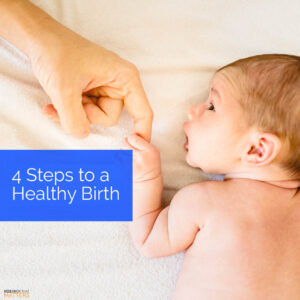section-02280fe
Pregnancy: Tips to Relieve Back Pain During Pregnancy and A Safe And Healthy Birth
Having back pain during pregnancy? Here are some tips to relieve the back pain during pregnancy as well as some tips for a safe and healthy birth.
section-fcdc209
How Your Body Changes
 Bottom Line:
Bottom Line:
A woman’s body undergoes many transformations during the nine months of pregnancy. Some of these changes are visible, such as an expanding belly, while others, such as morning sickness and backaches, may not be as visible but equally well known. Then there a few body changes may be unexpected and catch some women by surprise
Why it Matters:
During pregnancy, the hormone Relaxin is produced to help loosen the joints and ligaments of the pelvis to best prepare the body for birth. Relaxin not only relaxes those ligaments in the pelvis, but also stretches other joints and ligaments all over the body.
This is one reason pregnant women develop back pain or sciatica (pain that starts in the back and travels down the leg into the foot).
As those ligaments become looser and the body’s center of gravity is pulled forward by a growing baby, a woman’s low back can become over-stressed by these biomechanical changes, resulting in pain.
- Relaxin is a hormone produced during pregnancy that relaxes the joints and ligaments to prepare the body for birth.
- What’s more, the other joints and ligaments of the body also become “looser” due to Relaxin, which can lead to changes in the body’s movement patterns.
- These changes, while welcomed, often result in low back pain and other joint pains throughout pregnancy.
Next Steps:
Pregnancy is a special time in a woman’s life, and a unique time for the body. The changes that help guide a successful birth process can also wreak havoc on a woman’s back and joints. If you or an expecting mother you know are looking to find natural pain relief solutions, give us a call. We’re happy to evaluate you and work with your birth team to provide non-invasive, safe, effective care that can help keep you active through all three trimesters!
Science Source(s):
Back Pain in Pregnancy. University of Rochester Medical Center. 2020.
section-3845968
Tips to Relieve Back Pain During Pregnancy
 Bottom Line:
Bottom Line:
An estimated 85% of women experience back pain during pregnancy. Why? As a woman enters her second or third trimester, her growing baby pulls her body’s center of gravity forward, which in turn increases the curve of her low back. That increased amount of stress on the low back often leads to pain.
Why it Matters:
Spinal adjustments are considered a highly safe, effective, non-invasive, and evidence-based option for women to find relief from pregnancy induced back pain. In fact, Chiropractors often also provide specific exercise and stretching recommendations to help ensure lasting results.
A recent study found that patients who received care from their OB-GYN and Chiropractor together had greater reductions in pain and an improved quality of life versus those who only saw an OB-GYN alone.
- Approximately 92% of pregnant women are advised by their primary doctor to exercise and stay active during pregnancy.
- Choosing the right pillows and finding the best stretches can dramatically reduce any pregnancy induced neck and mid-back.
- The low back pain that many women experience during pregnancy can often be relieved with chiropractic adjustments.Next Steps:
If you or someone you know is expecting, reducing stress, staying physically active, and finding relief from those pregnancy related aches and pains are important. We hope you’ll consider including us as part of your birth team. An amazing 90% of women report a high level of satisfaction with receiving chiropractic care during pregnancy, so it’s no wonder that chiropractic is one of the most popular “organic” healthcare choices for expecting moms.
Science Source(s):
Optimizing Pain Relief During Pregnancy Using Manual Therapy. Canadian Family Physician. 2013.
section-8702f34
NSAID Risks: Making Smart Healthcare Decisions During Pregnancy
 Bottom Line:
Bottom Line:
Pregnant women are certainly not immune to aches and pains. In fact, it’s estimated that over 85% of expecting mothers will deal with back pain. Finding relief without the use of medication is almost always the best route for the health of mom and baby. Even over-the-counter medications can be risky to take before and during pregnancy.
Why it Matters:
All medications have side-effects, and these are often heightened during pregnancy. For instance, a drug like acetaminophen has been linked to a greater risk of ADHD and asthma in children. Likewise, NSAIDs have been linked to a 59% increased risk of miscarriage.
- Finding organic pain solutions before conception and throughout pregnancy is a smart decision.
- NSAIDs cross from mother to baby easily through the placenta and can influence the production of prostaglandins that promote inflammation.
- Taking NSAIDs can increase the risks of asthma and hypertension in newborns.
Next Steps:
Talking to your doctor about medication use before becoming pregnant is a smart idea. And if you or someone you know is anticipating pregnancy, it’s smart to begin looking for natural, organic solutions for your health issues. We specialize in natural, non-invasive care, and hope you’ll give us a call if you have questions about the best options for you!
Science Source(s):
Use of nonsteroidal anti-inflammatory drugs during pregnancy and the risk of miscarriage. American Journal of Obstetrics & Gynecology. 2018.
NSAID Use During Pregnancy Linked to Pulmonary Hypertension in Newborns. Pharmacy Today. 2001
section-1bd1ad9
4 Steps to a Healthy Birth
 Bottom Line:
Bottom Line:
With all of the advances in medical science, it may come as a surprise to discover that many of the technological interventions used in modern maternity management don’t seem very evidence based. Afterall, the natural birth process is designed to be relatively simple – it’s been going on for hundreds of thousands of years! A woman’s own body can grow, birth, and nourish a baby.
Why it Matters:
The use of intravenous lines, continuous monitoring, and restricted movement can often make labor more difficult by both increasing stress and interfering with the natural process, which can then increase the risk of complications.
Knowing this, the World Health Organization recommends four care practices that promote, support and protect a normal birth process.
1. Let labor begin on its own. In many cases, inducing labor can increase the risk of complications for mother and child.
2. Move and change positions during labor. Moving around can help labor progress and may shorten the total labor time.
3. Bring a loved one or Doula for support. Labor support has been sown to reduce the likelihood of cesarean section and improve the birth experience.
4. Avoid interventions that aren’t necessary. Continuous electronic monitoring hasn’t been shown to provide better outcomes for the baby and may increase the risk c-section.
Next Steps:
Welcoming a child is a special event, and no one decision should be taken lightly. It’s essential to understand and respect the body’s natural ability to navigate the process. Our practice is proud to work with a variety of midwives, doulas, and OB-GYNs in our community. Together, we can help create a better birth experience and make it as comfortable as possible!
Science Source(s):









